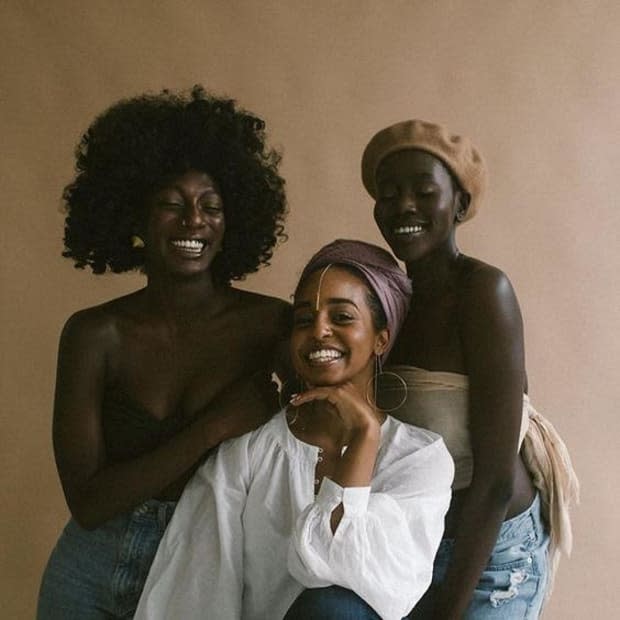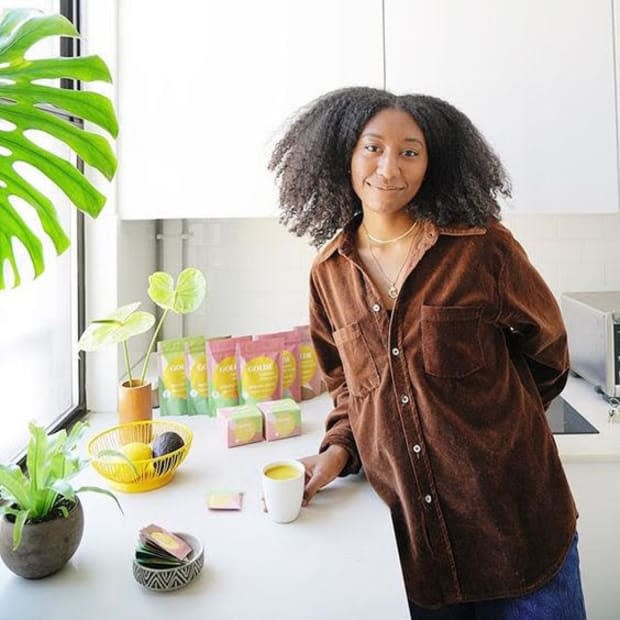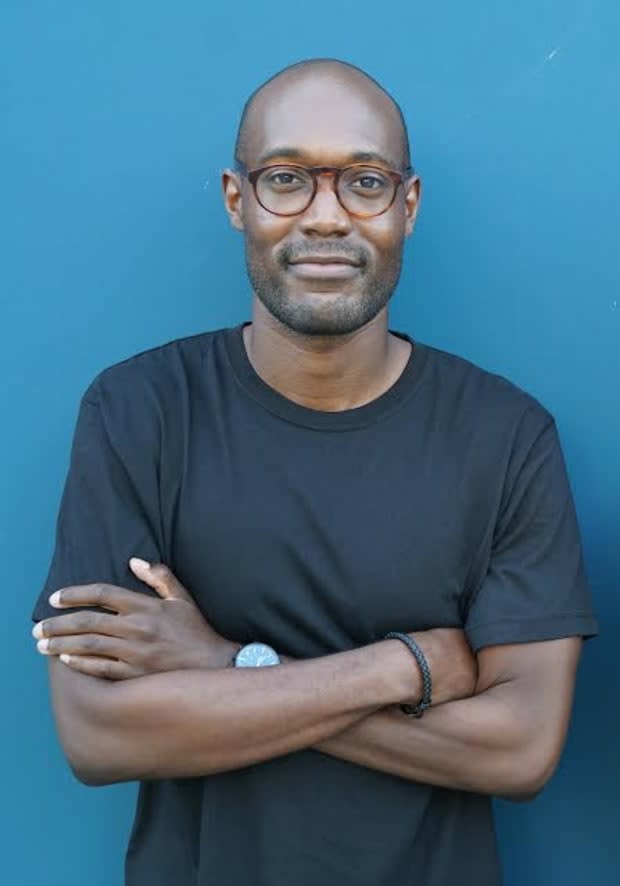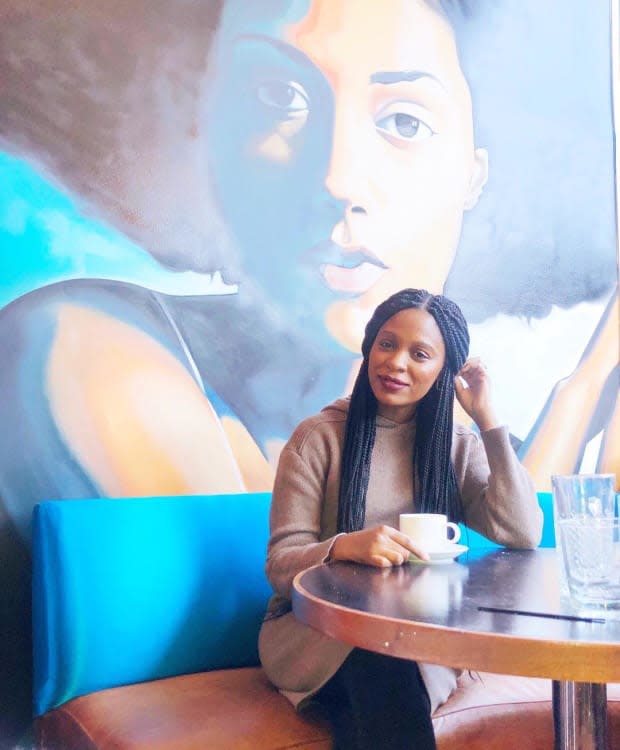4 Black Beauty Entrepreneurs Share the Lessons That Helped Spur Their Success
They offer insights about overcoming self-doubt, leveraging the power of social media and knowing when to ignore outside advice.

Welcome to Career Week! While we always make career-focused content a priority on Fashionista, we thought spring would be a good time to give you an extra helping of tips and tricks on how to make it in the fashion and beauty industries.
Starting a business is no easy feat. And in a startup-crazed, billion-dollar-valuation-obsessed industry like beauty, it can seem nearly impossible to turn a good idea into a successful company. Plus, like in many other fields, the deck is stacked against entrepreneurs of color, who are often facing a whole set of additional challenges. That's what makes it all the more impressive when a brand manages to break through the noise and carve out a space for itself. But a whole host of Black-owned and -founded indie beauty brands are on the rise, many of which aim to build an ethos of connectivity and service by not only producing high-quality products, but also catering to their communities in tangible ways.
With that in mind and in honor of Career Week, Fashionista spoke with four Black founders and entrepreneurs who are stirring things up in the beauty industry right now: Hanahana Beauty founder Abena Boamah, Vivrant Beauty founder Desiree Verdejo, Golde founder Trinity Mouzon and Ceylon founder Patrick Boateng II. While each one is bringing a unique perspective to beauty and delivering on a different underserved segment of the market, they share a scrappy approach to brand-building, amazing capacity for on-the-job learning and adaptation and a belief in the importance of transparency. They're also generous with their wisdom and willing to pay it forward to other aspiring entrepreneurs out there. Read on for their insights about overcoming self-doubt, leveraging the power of social media and knowing when to ignore outside advice.
Lesson 1: Research, prepare, repeat.
Nearly 2,000 years ago, the Roman philosopher Seneca said, "luck is where preparation meets opportunity," an adage that still rings true today. Diligent preparation, long before launching Ceylon, his skin-care line that caters to men of color, is one of the main keys to Boateng's success, to hear him tell it. "A mentor told me to find out everything there is to know about the industry you're entering and what you want to make," he says. "Having this nuanced understanding of the market and history of the industry can really help you get firm on exactly what you want to do."
For Mouzon, financials were also imperative in order before launching a brand. "Everything costs more than you think it will, and you should prepare for that," she advises. The one thing she wishes she knew before launching her entirely self-funded wellness and skin-care brand, Golde? "Be conservative with your revenue projections and aggressive with your spend assumptions. Try to gather these future costs upfront so you can build out your financial models accordingly."
Related Articles
Meet Dooplex, the Self-Described 'Sephora of Black Beauty Products'
Natural Skin-Care Brand Epara Is Made For — and by — Women of Color
The Skin-Care Industry Is Thriving — But How Long Can This Boom Last?

Lesson 2: Just take the leap.
Starting a business is always scary, whether it's your first or tenth. But there's always one defining moment (or several, in some cases) when the fear of not taking the leap outweighs the risk. For Boamah, whose company Hanahana works directly with shea cooperatives in Ghana, that moment came in December 2016. "Once I had the idea, I decided I would give myself three months to launch. As soon as I decided to launch the business, I took it seriously and started working with my friend Deun Ivory on branding," Boamah shares.
Verdejo is the founder of e-commerce site Vivrant Beauty, which focuses on products specifically suited for women of color. Her entrepreneurial "eureka!" moment — and somewhat unexpected career path — unfolded much differently. "I practiced law for seven years and, if I'm honest, I was incredibly scared to leave my comfy corporate job behind, so I spent a long period of time flirting with the idea of launching a beauty boutique," she says. After nearly two years of mulling it over, Verdejo knew it was time just take the leap.

Lesson 3: Don't let your need for perfectionism kill your dream.
Anyone who has watched an episode or two of "Shark Tank" knows the feeling: A (seemingly) great idea strikes us. We write it down and even share it with a few friends, but then second-guessing and an idealistic need for perfectionism starts to creep in. A paralyzing desire to have everything be just right before sharing it with the world stops us from ever moving forward.
"I wish someone would have told me to just launch — you can perfect things as you go. With Vivrant Beauty, it took me a while to jump off of the corporate ladder and I found myself stalling again with a new skin-care venture that I'm finally bringing to market soon," says Verdejo. The best feedback you'll receive is from your customers, and for that to happen you need to get product into their hands.
Boateng echoes this sentiment: "You'll spend far more time and energy managing your personal psychology than you know. I'm not sure that it's something you can be especially prepared for," he says.

Lesson 4: Leverage the power of social media to build authentic community instead of just to push products.
Our need for connection, both near and far, is what drives so many of us. And while beauty brands try to capitalize on this very basic human desire, those that are additive are able build true communities around their brands.
"We utilize our social media and our online platform as a learning curation. We make sure that our page is not just visually pleasing, but also a space where people can receive information," Boamah says of her brand's social media profiles.
Ceylon has intentionally built a space for people to feel comfortable sending DMs and commenting. "We think it's a great tool for community building, less so for marketing. Even though brands try hard to push their products through social, we're all still subject to the whims of an algorithm," he says.
Lesson 5: You know what's best for your business more than anybody.
After doing copious amounts of research, overcoming the inevitable self-doubt, and then harnessing the power of social media, entrepreneurship can still be very hard. It can be difficult to keep a clear head through the noise and make sure you're staying the course.
"Once your business achieves a few milestones, there's so much pressure to scale as quickly as possible. When you're comparing your growth to a brand that's spending $100K a month on Instagram ads, it can be tough to see the light at the end of the tunnel. That said, I don't regret this decision in the slightest. For now, we're thrilled to be growing by word of mouth and sheer scrappiness," Mouzon explains.
Never miss the latest fashion industry news. Sign up for the Fashionista daily newsletter.
